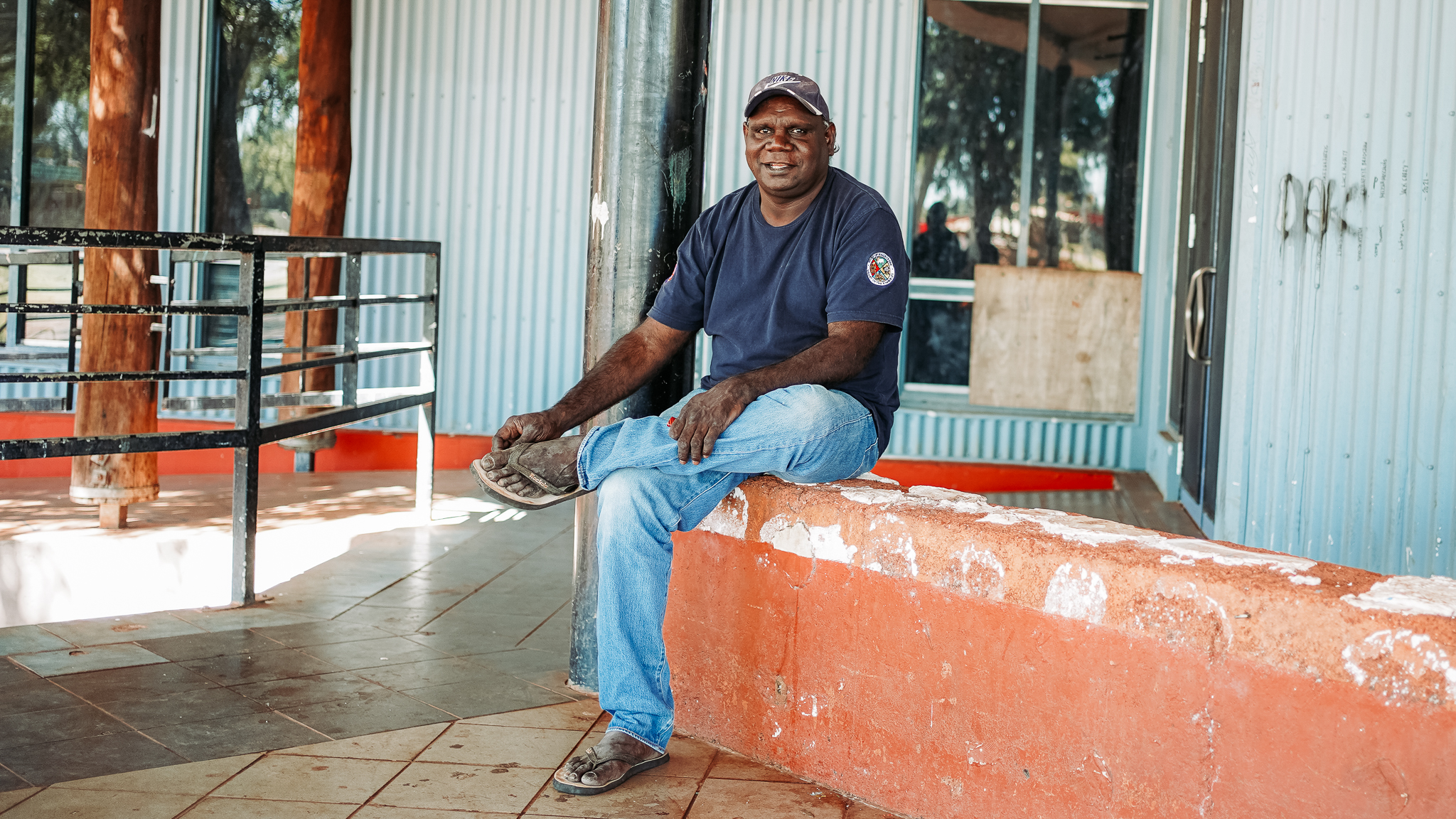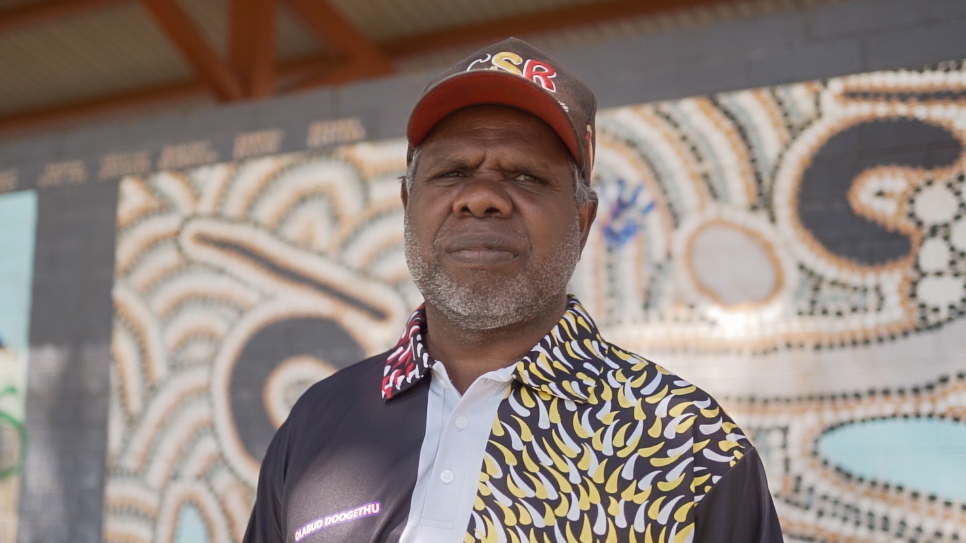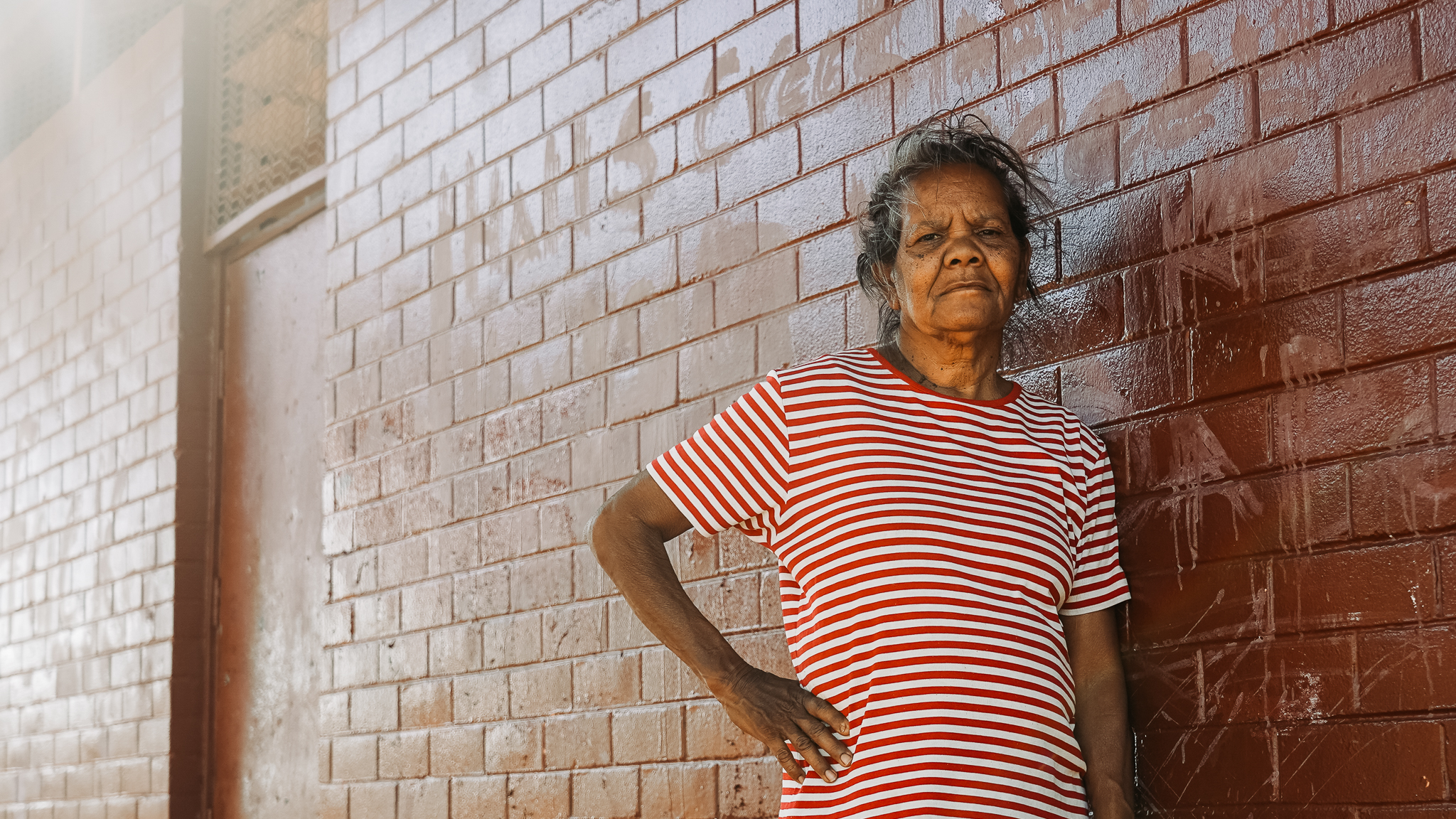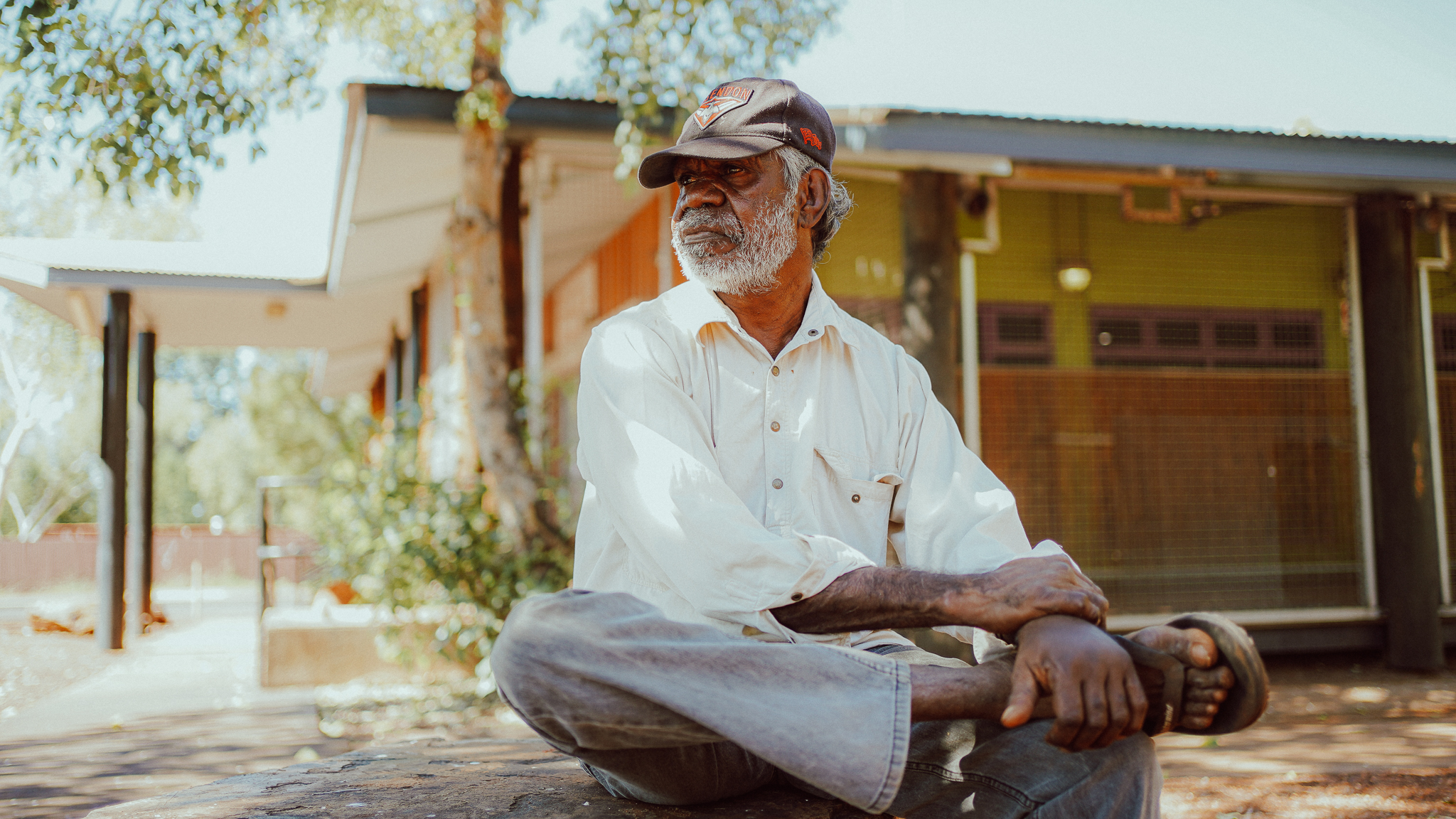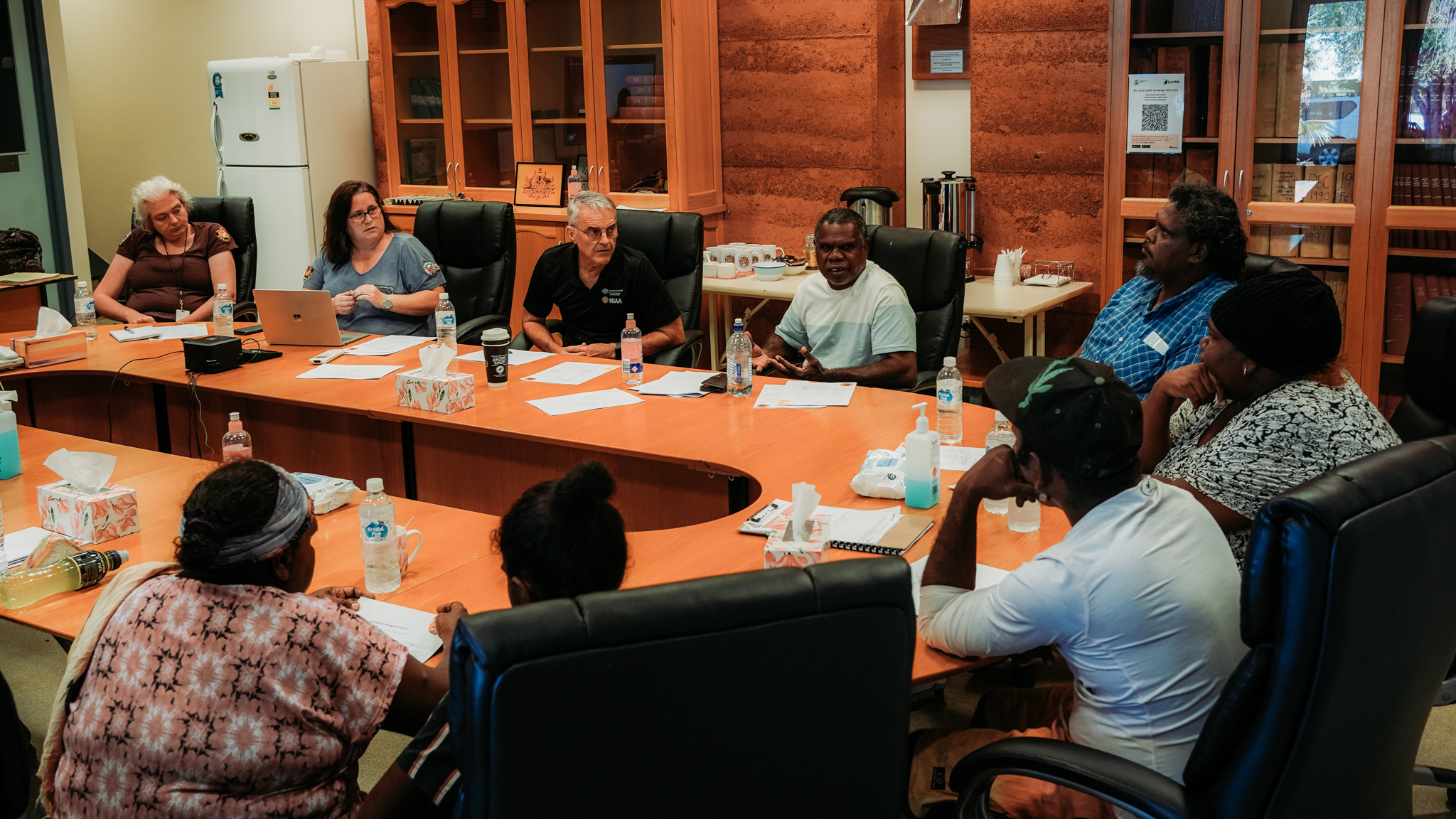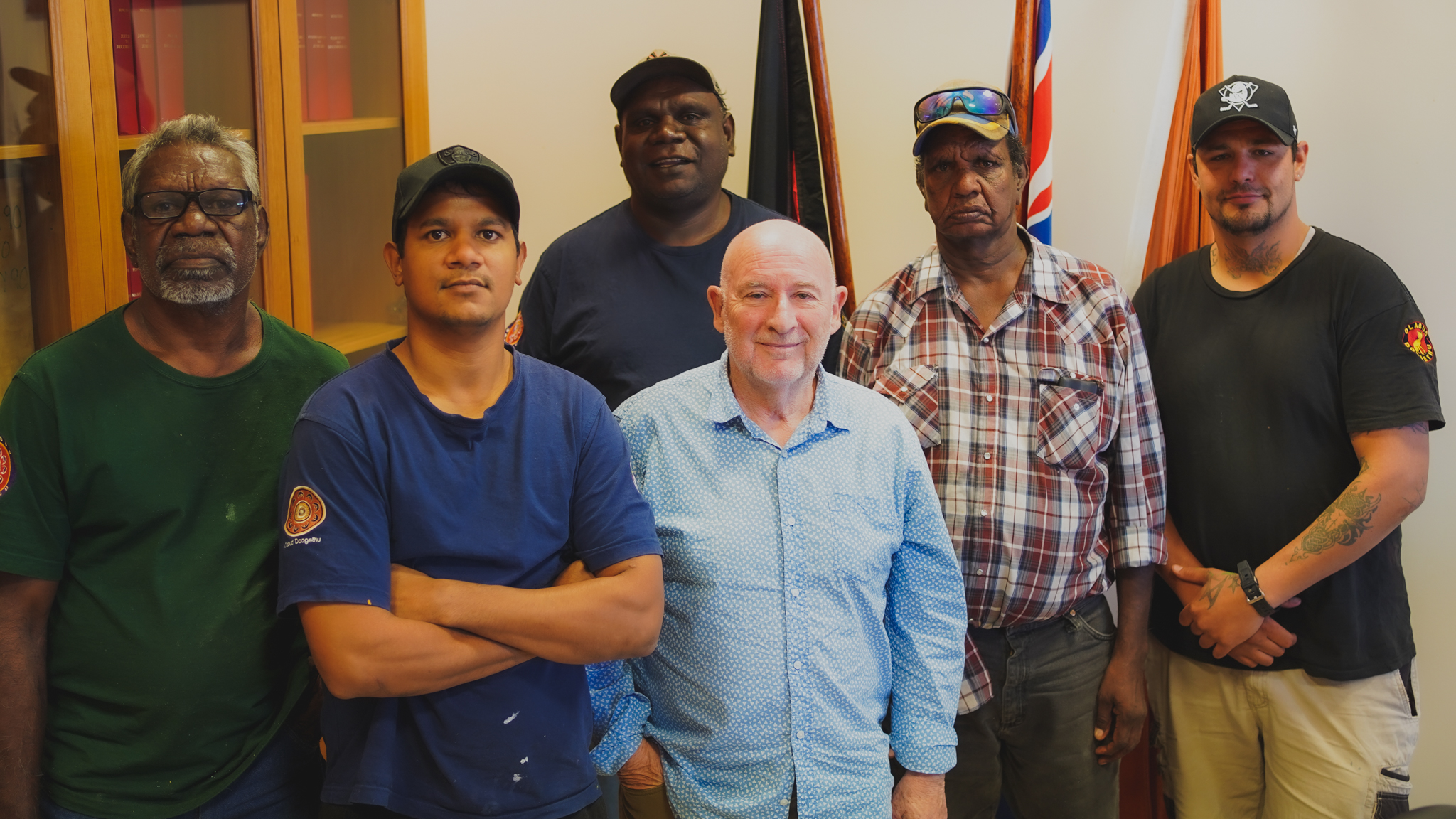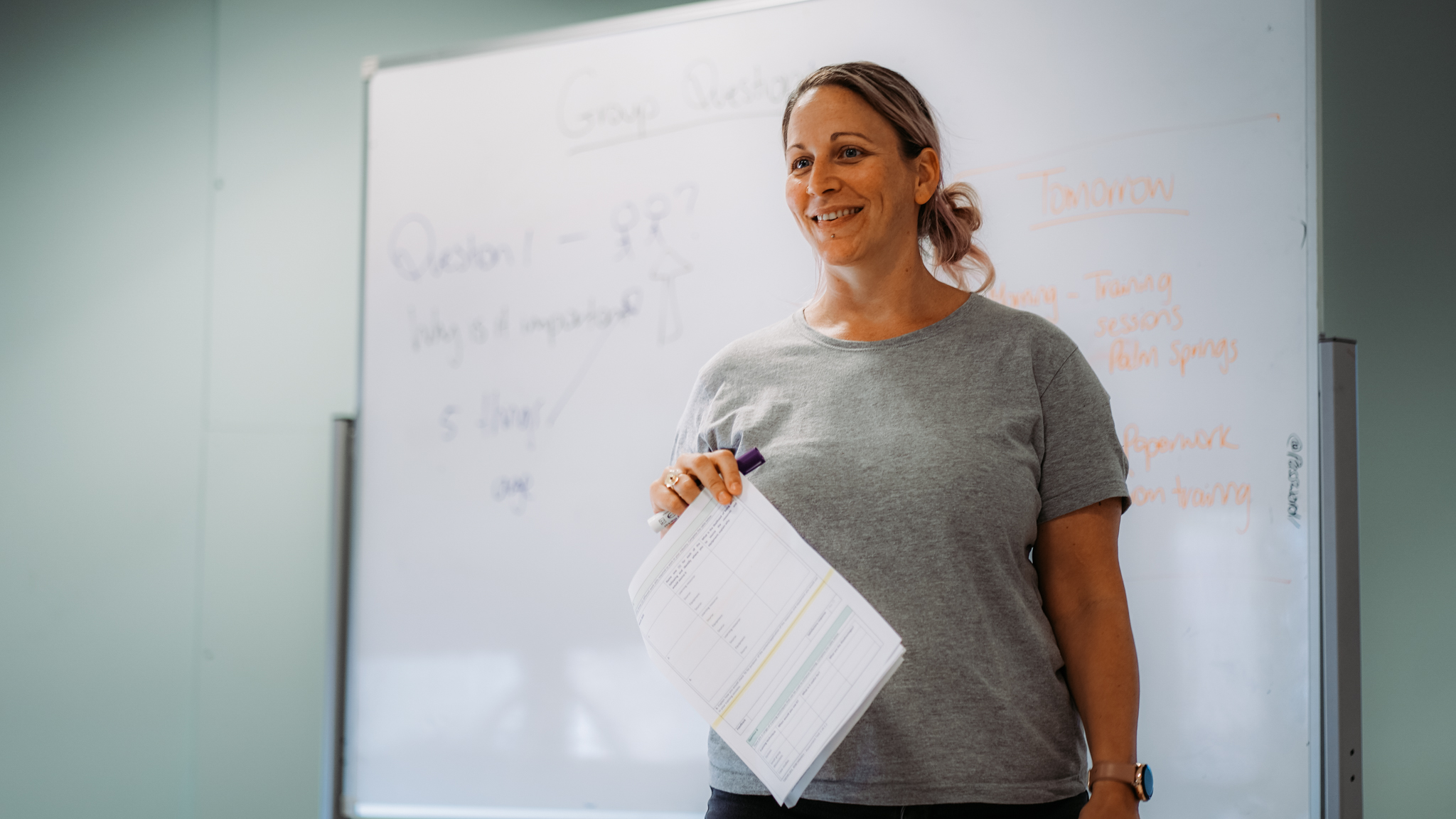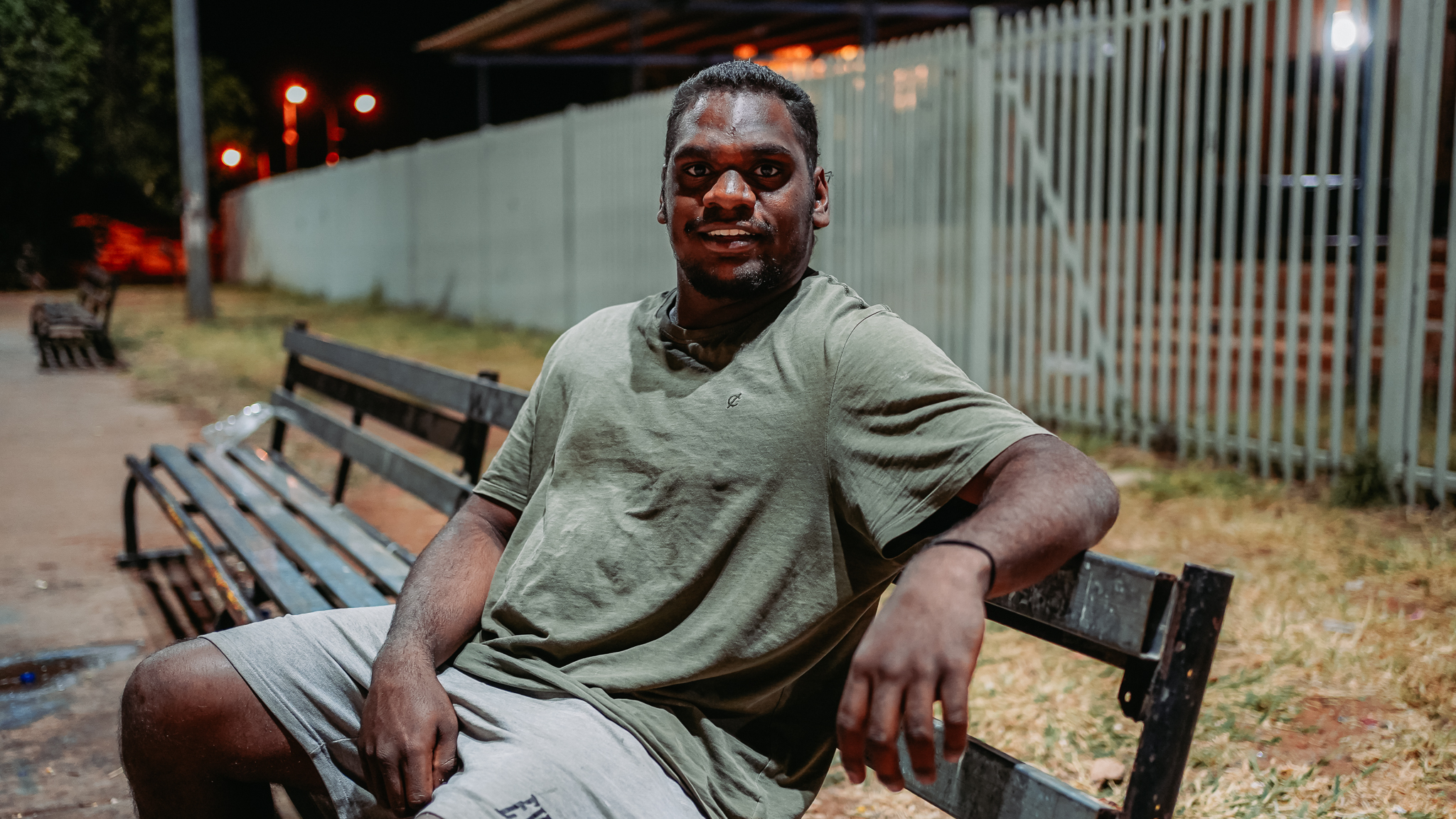To come together, you need to respect the other one too. Respect is the biggest thing.
For me, you can only do this through listening. When you listen, you can get a better understanding of both sides. But I also think you need to turn the tables where everybody can listen to First Nations people and hear about our stories, our history, our cultures.
Reconciliation is all about coming together. We should have opportunities where we can take people out bush and share stories. It’s important when you come into a town, like Halls Creek, that you respect the locals – the people who have lived here for a long time. But also if you can engage culturally – men and women – having a yarn with the local people but also getting smoked and just have a better understanding of the people, places and culture.
Because when I think of a reconciled Australia, I think of one big mob. One big family. Coming together. We should all come together, forget about the past, move on and to think about the future for our children.
Dean Mosquito
Executive Officer, Culture and Transformation
